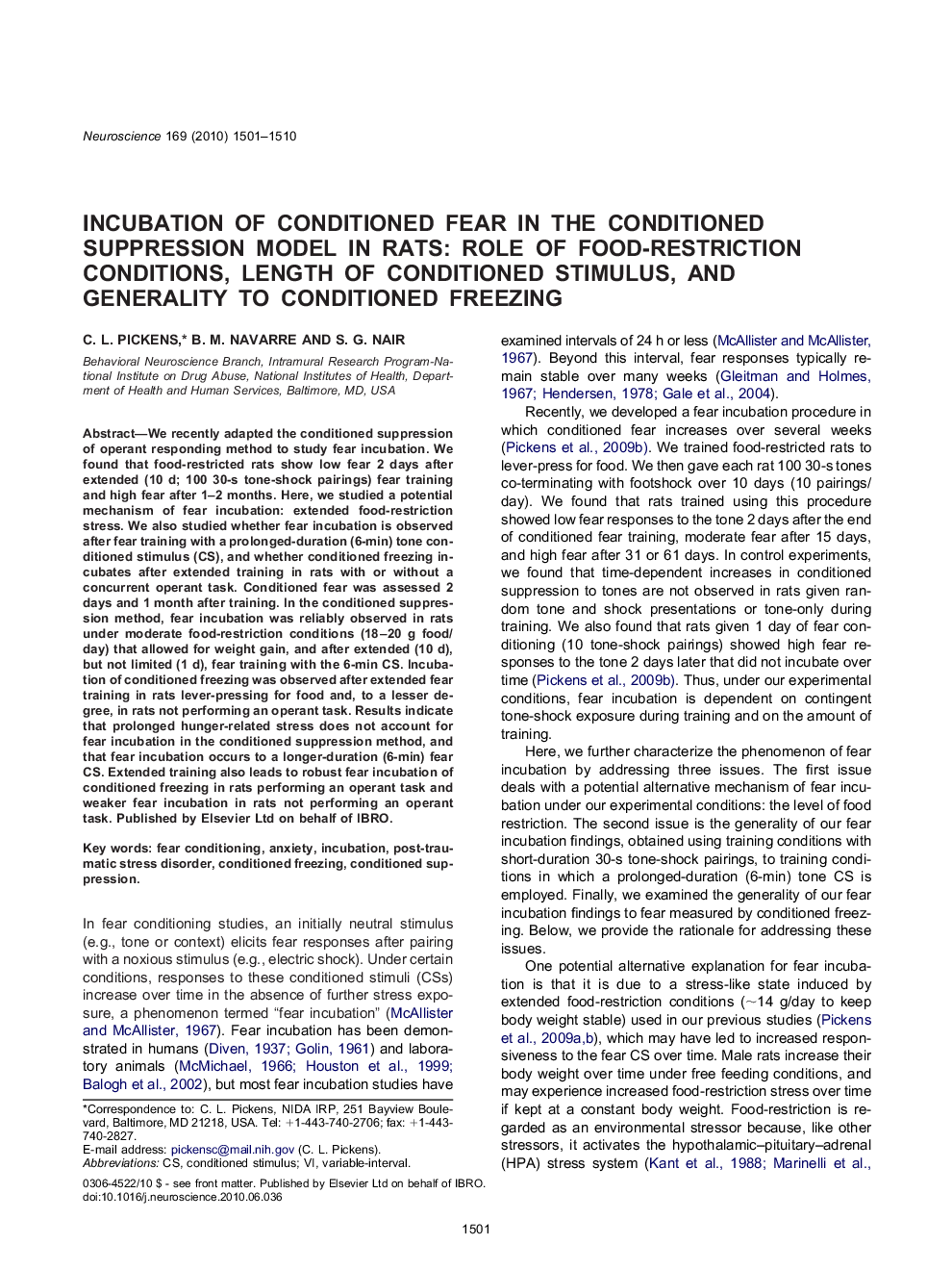| Article ID | Journal | Published Year | Pages | File Type |
|---|---|---|---|---|
| 6277092 | Neuroscience | 2010 | 10 Pages |
Abstract
We recently adapted the conditioned suppression of operant responding method to study fear incubation. We found that food-restricted rats show low fear 2 days after extended (10 d; 100 30-s tone-shock pairings) fear training and high fear after 1-2 months. Here, we studied a potential mechanism of fear incubation: extended food-restriction stress. We also studied whether fear incubation is observed after fear training with a prolonged-duration (6-min) tone conditioned stimulus (CS), and whether conditioned freezing incubates after extended training in rats with or without a concurrent operant task. Conditioned fear was assessed 2 days and 1 month after training. In the conditioned suppression method, fear incubation was reliably observed in rats under moderate food-restriction conditions (18-20 g food/day) that allowed for weight gain, and after extended (10 d), but not limited (1 d), fear training with the 6-min CS. Incubation of conditioned freezing was observed after extended fear training in rats lever-pressing for food and, to a lesser degree, in rats not performing an operant task. Results indicate that prolonged hunger-related stress does not account for fear incubation in the conditioned suppression method, and that fear incubation occurs to a longer-duration (6-min) fear CS. Extended training also leads to robust fear incubation of conditioned freezing in rats performing an operant task and weaker fear incubation in rats not performing an operant task.
Keywords
Related Topics
Life Sciences
Neuroscience
Neuroscience (General)
Authors
C.L. Pickens, B.M. Navarre, S.G. Nair,
